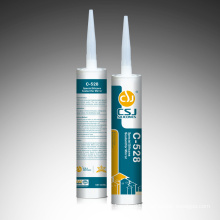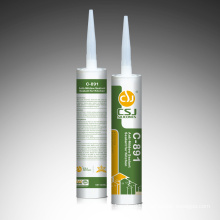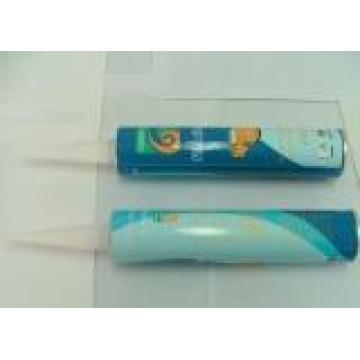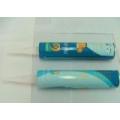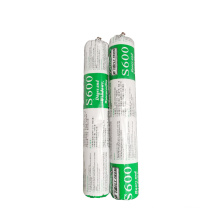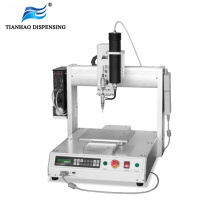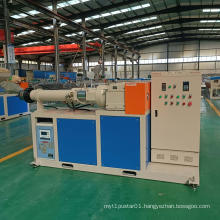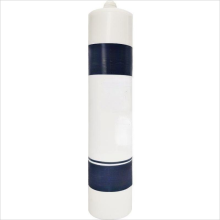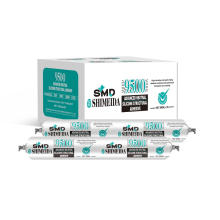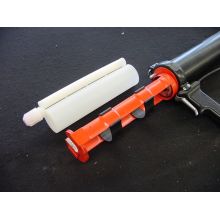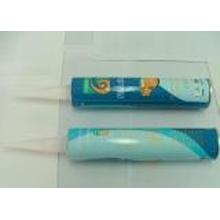Ms (modified silicon) Adhesive Sealant for Solar PV Industry (Flexibond MS 8930)
Product Description
PRODUCT DESCRIPTION
Flexibond MS 8930 provides the following product characteristics:
Technology Silane modified polymer
Product Type Sealant
Components One-component
Cure Humidity
Application Assembly
Appearance White, Grey, Black
Consistency Pasty, Thixotrpic
Odor Characteristic
Flexibond MS 8930 is a gun-grade, one component sealant based on silane modified polymer, which cures by reaction with moisture to a soft elastic product. The skin formation and the curing times are dependent on humidity and temperature, and the curing time also depends on joint depth. By increasing the temperature and moisture these times can be reduced; Low temperature as well as low moisture retard the process. Flexibond MS 8930 is free of solvents, isocyanates, silicones and PVC. It demonstrates good adhesion to many substrates. The sealant also demonstrates good UV resistance and can therefore be used for interior and enterior applications. Flexibond MS 8930 allows accelerated curing as two-component material. See Flexibond MS 8938 2c Technology Date Sheet.
Application Areas:
Flexibond MS 8930 is used for the following applications: Seam and joint sealing in vehicle body, railway carriage and container manufacture; Ship and boat building; Metal construction; The equipment, electrical, plastics, air conditioning and ventilation industries; For conventional vehicle window glazing between rubber profile and glass, for bonding of floor coverings in bus manufacturing.
TECHNICAL DATA
Density, g/cm³ : approx. 1.5
Sag resistance: No sagging (DIN profile 15mm)
Skin formation time, min*: Approx. 25 to 40
Cure rate, mm/24 hrs: approx. 4
Shore-A-hardness
(ISO 868, Durometer A)*: Approx. 25
Tensile strength
(acc. To ISO 37), MPa*: approx. 1.0
Elongation at break
(acc. To ISO 37,
Speed 200 mm/min), %: approx. 400
Stress at 100% elongation
(acc. To ISO 37), MPa: approx. 0.4
Volume change
(acc. To DIN 52451) <2
Tensile shear strength
(acc. To ISO 4587), MPa: >0.7
Substrates: Al 99.5
Layer thickness, mm: 2
Cross head speed, mm/min: 10
UV resistance: no signif. Changes
UV source: Osram Vitalux 300W, dry UV
Distance to the specimen, cm: 25
Test period, weeks: 6
Application temperature, ° C: 5 to 40
In service temperature
Range, ° C: -50 to +80
Short exposure (up to 1 h), ° C: 150
* DIN 50014 standard climate: 23° C, 50% relative air humidity
DIRECTIONS OF USE
Pre-Treatment:
The substrates must be clean, dry, oil- and grease free. Depending on the surface it can be necessary to roughen the surface or to use a primer/adhesion promoter to provide best adhesion. Corona or Plasma treatment improves the adhesion to many different materials. When manufacturing plastics, external release agents are often used; These agents must be accurately removed prior to starting bonding or sealing. Due to the different compositions of paints, especially powder paints and the large number of different substrates, application trials before use are necessary. When bonding and sealing PMMA, e. G. Plexiglas® , and polycarbonate, e. G. Makrolon® Or Lexan® , under tension, stress corrosion cracking may occur. Application trials before use are necessary. There is no adhesion to polyethylene, polypropylene and PTFE (e. G.
Teflon® ). Substrates not mentioned above should be subject to trials.
Application:
Application from 310 ml cartridgrs is made with the Hand or Air Pressure Pistols, In the case of compressed air application a pressure of 2 to 5 bar is required. Low material temperatures of the sealant will lead to an increase of viscosity, resulting in a lower extrusion rate. This can be avioded by bringing the sealant up to room temperature prior to application. If substrates are too cold, temperature may fall below dew point causing condensation. This can be avoided by bringing the substrates up to room temperature in time. Contact us if you need more details on Ms Polymer. We are ready to answer your questions on packaging, logistics, certification or any other aspects about Solar Pv Industry、Photovoltaic Assembled Parts. If these products fail to match your need, please contact us and we would like to provide relevant information.
Flexibond MS 8930 provides the following product characteristics:
Technology Silane modified polymer
Product Type Sealant
Components One-component
Cure Humidity
Application Assembly
Appearance White, Grey, Black
Consistency Pasty, Thixotrpic
Odor Characteristic
Flexibond MS 8930 is a gun-grade, one component sealant based on silane modified polymer, which cures by reaction with moisture to a soft elastic product. The skin formation and the curing times are dependent on humidity and temperature, and the curing time also depends on joint depth. By increasing the temperature and moisture these times can be reduced; Low temperature as well as low moisture retard the process. Flexibond MS 8930 is free of solvents, isocyanates, silicones and PVC. It demonstrates good adhesion to many substrates. The sealant also demonstrates good UV resistance and can therefore be used for interior and enterior applications. Flexibond MS 8930 allows accelerated curing as two-component material. See Flexibond MS 8938 2c Technology Date Sheet.
Application Areas:
Flexibond MS 8930 is used for the following applications: Seam and joint sealing in vehicle body, railway carriage and container manufacture; Ship and boat building; Metal construction; The equipment, electrical, plastics, air conditioning and ventilation industries; For conventional vehicle window glazing between rubber profile and glass, for bonding of floor coverings in bus manufacturing.
TECHNICAL DATA
Density, g/cm³ : approx. 1.5
Sag resistance: No sagging (DIN profile 15mm)
Skin formation time, min*: Approx. 25 to 40
Cure rate, mm/24 hrs: approx. 4
Shore-A-hardness
(ISO 868, Durometer A)*: Approx. 25
Tensile strength
(acc. To ISO 37), MPa*: approx. 1.0
Elongation at break
(acc. To ISO 37,
Speed 200 mm/min), %: approx. 400
Stress at 100% elongation
(acc. To ISO 37), MPa: approx. 0.4
Volume change
(acc. To DIN 52451) <2
Tensile shear strength
(acc. To ISO 4587), MPa: >0.7
Substrates: Al 99.5
Layer thickness, mm: 2
Cross head speed, mm/min: 10
UV resistance: no signif. Changes
UV source: Osram Vitalux 300W, dry UV
Distance to the specimen, cm: 25
Test period, weeks: 6
Application temperature, ° C: 5 to 40
In service temperature
Range, ° C: -50 to +80
Short exposure (up to 1 h), ° C: 150
* DIN 50014 standard climate: 23° C, 50% relative air humidity
DIRECTIONS OF USE
Pre-Treatment:
The substrates must be clean, dry, oil- and grease free. Depending on the surface it can be necessary to roughen the surface or to use a primer/adhesion promoter to provide best adhesion. Corona or Plasma treatment improves the adhesion to many different materials. When manufacturing plastics, external release agents are often used; These agents must be accurately removed prior to starting bonding or sealing. Due to the different compositions of paints, especially powder paints and the large number of different substrates, application trials before use are necessary. When bonding and sealing PMMA, e. G. Plexiglas® , and polycarbonate, e. G. Makrolon® Or Lexan® , under tension, stress corrosion cracking may occur. Application trials before use are necessary. There is no adhesion to polyethylene, polypropylene and PTFE (e. G.
Teflon® ). Substrates not mentioned above should be subject to trials.
Application:
Application from 310 ml cartridgrs is made with the Hand or Air Pressure Pistols, In the case of compressed air application a pressure of 2 to 5 bar is required. Low material temperatures of the sealant will lead to an increase of viscosity, resulting in a lower extrusion rate. This can be avioded by bringing the sealant up to room temperature prior to application. If substrates are too cold, temperature may fall below dew point causing condensation. This can be avoided by bringing the substrates up to room temperature in time. Contact us if you need more details on Ms Polymer. We are ready to answer your questions on packaging, logistics, certification or any other aspects about Solar Pv Industry、Photovoltaic Assembled Parts. If these products fail to match your need, please contact us and we would like to provide relevant information.
Product Categories : Adhesive Sealant
Premium Related Products
Other Products
Hot Products
Multiple Purpose Neutral Sealing High Grade Neutral Silicone SealantCsj-613 Silicone Sealant for Stone C-891 Sanitary SealantTwo Components Silicon Sealant for Insulating Glass Seal and JointHigh Quality Stone Silicone SealantAcetic General Purpose Silicone SealantExcellent Silicone Sealant with Competitive PriceNo Pollution Granite Silicone SealantOne Component Quick Curing Silicone SealantAnti-Mildew Sealant for Kitchen & Bathroom (C-891)Acetoxy Silicone Sealant for General Purpose C-363Two-Component Silicone Sealant for Insulating GlassHigh Performance Weatherproof Silicone Sealant for PVC Skylight CanopyStructural Silicone Sealant for Aluminum Composite PanelsFast Curing Structural Silicone Sealant for Glass Fish TankFast Curing Neutral Silicone Sealant for a Wide Range of Aluminum Doors and Windows
